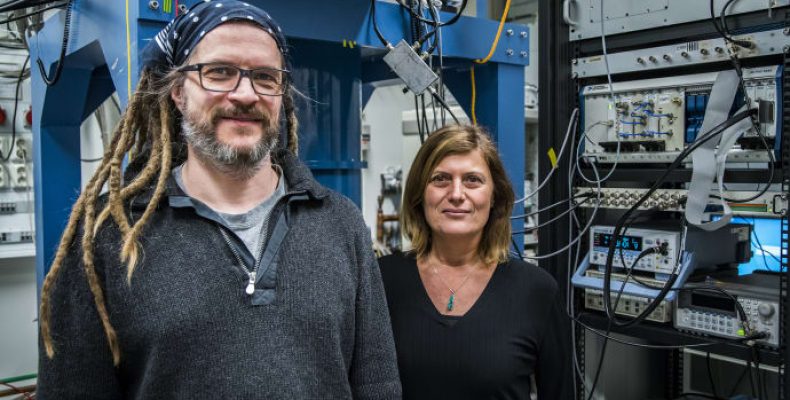Blog

Unconventional Superconductor May Be Used to Create Quantum Computers Soon
What are Quantum Computers?
To have an idea of Quantum Computers, we need to first take a look at the conventional computers. In conventional computing, a ‘bit’ is a single bit of information which is defined by binary code: 1 and 0. Quantum Computers, which involve quantum computing have units or ‘qubits’ which are not limited to the binary state. They can store a large amount of data using less energy unlike that of a usual ‘bit’.
Quantum computers will be the next generation of supercomputers. If these quantum computers come into existence, then many complex chemical processes can be tackled. At this given point in time, many companies and researchers are trying their best to create the most powerful computer.
Creating the Quantum Computers
One of the greatest challenges faced by researchers throughout the world to build the quantum computers is to overcome the sensitivity of the quantum systems to decoherence. Basically, Quantum Computers with topological superconductors should have a very long coherence time.
Majorana particles are insensitive to decoherence, therefore they can become the main building blocks of a quantum computer. Majorana particles are also known as Majorana fermions. Majorana particles are original particles like electrons, neutrons and protons and they belong to the group fermions.
These Majorana fermions are original particles and can be considered as half electron. The Majorana fermion is its own antiparticle. The only difficulty is that these Majorana particles occur only under special circumstances. In quantum computers, we need to encode information in a pair of Majorana fermions which are separated in the material and make it immune to decoherence.
Majorana fermions:
In solid state materials, these Majorana fermions occur in topological superconductors. These topological superconductors do not actually exist. A research team at Chalmers University of Technology seems to have succeeded in creating a topological superconductor.
To create this topological superconductor, they began with a topological insulator (conducts current in a special way only on the surface) made of Bismuth Telluride, Bi2Te3. A layer of Aluminum (which is a superconductor) was then placed on top.
It conducts current without resistance even at low temperatures. The superconducting pair of electrons then leak into the topological insulator which then makes it into a superconductor. After careful observation it was noted that the topological insulator had minimal superconductivity.
When the components were cooled down and they needed to carry out some measurements, the situation changes and the superconducting pair of electrons varied in different directions. This was not compatible with conventional superconductivity.
Lombardi’s team used Platinum along with Aluminum to create the topological insulator. On cooling, there were stresses in the material whereby there were changes in the properties of the superconductivity. Numerous trials and researches later, Lombardi’s team seems to have succeeded in creating a topological superconductor.
Based on their results, the material can become important for those who are trying to build a topological quantum computers.
Besides Google, IBM, there are a few startups that are forging ahead in the race to create the next generation of supercomputers.




